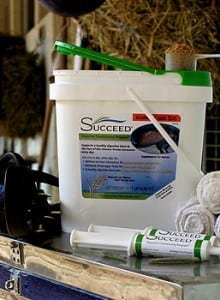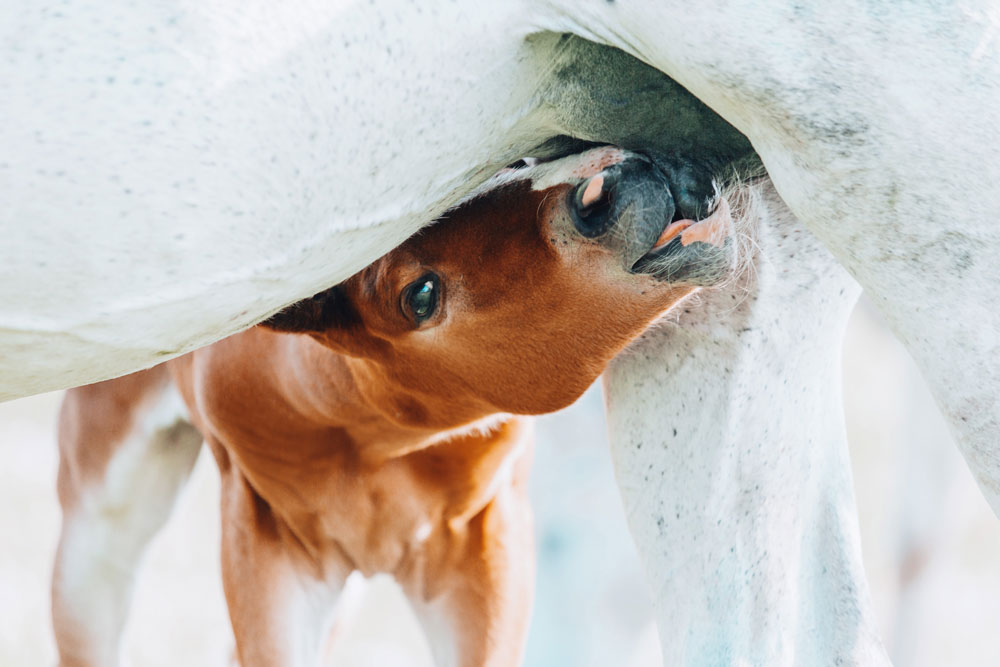
We are frequently asked about the differences between two popular digestive supplement products – probiotics and prebiotics. It’s a great question, and one worth addressing in some detail.
Supporting Healthy Microbes in the Hindgut
You probably already know that horses are hindgut fermenters. This means they utilize bacteria and other microorganisms in their cecum to help digest fiber (main component of forages) through the process of fermentation. Every horse has a mix of beneficial bacteria that aid in digestion, along with bad, or “pathogenic”, bacteria. The exact number and type of bacteria differs from horse to horse, and is based in part on the individual horse’s diet. In other words, each horse is different.
Changes in feed and feeding patterns can disrupt your horse’s natural digestive bacterial balance. Other factors can affect this as well, including stress brought on by training, travel, competition and living primarily in a stall.
The goal of supplementing with dietary probiotics and prebiotics is to support a healthy digestive bacterial population. Each takes a radically different approach to doing this.
Probiotics – Adding Live Bacteria
Often referred to as direct-fed microbials, probiotics are live microorganisms fed to the horse. The concept of probiotics is to support a healthy bacterial environment by feeding more of the “good” bacteria. Strains of bacteria included in many probiotic products include Lactobacillus acidophilus, Enterococcus, Streptococcus faecium and Lactobacillus lactis.
Prebiotics – Helping the Bacteria to Help Your Horse
Prebiotics do not include live bacteria or other microorganisms. Instead, prebiotics are inert, non-digestible ingredients, typically complex sugars, that serve to feed the bacteria already living in the horse’s hindgut. The intent of supplementing with prebiotics is to support the existing balance of bacteria in the horse. This happens by stimulating the growth and/or activity of the resident microorganisms so the beneficial bacteria remain in force and healthy.
Are you considering adding either prebiotics or probiotics to your horse’s feed regimen? Always consult with your veterinarian before changing your horse’s feeding program, or using supplements or other health products.



